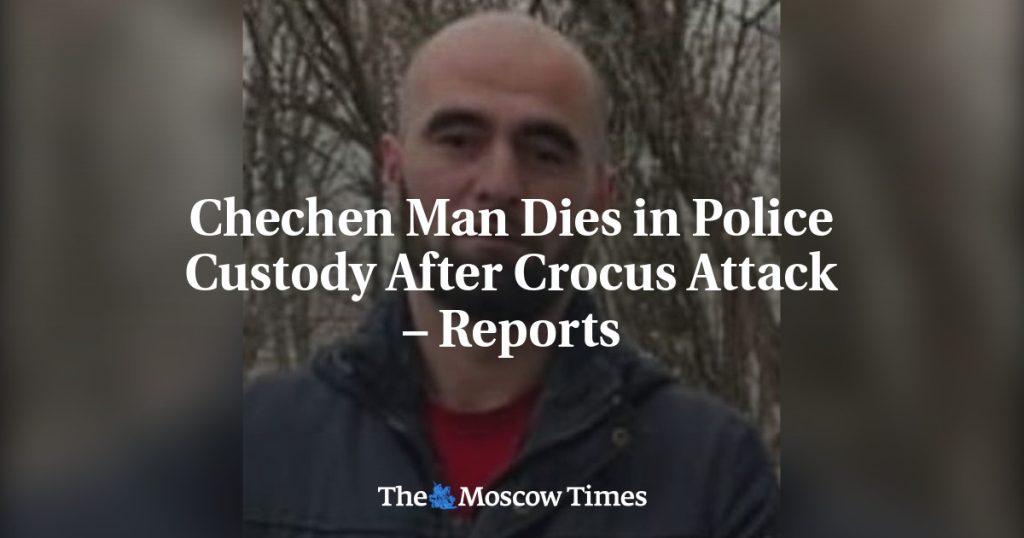A Chechen man named Askhab Uspanov died in police custody in Moscow shortly after being detained in connection with a terrorist attack at Crocus City Hall that left over 140 people dead and many more injured. His mother, Taisa Uspanova, reported that her son was arrested on the day of the attack, and his wife was informed of his death when she went to the police station where he was being held. Despite accusations from Russian officials that Ukraine and its allies were involved in the attack, Uspanov’s mother insisted that her son was not connected to the incident.
The Chechen opposition group 1Adat claimed that Uspanov had been tortured during his detention and published graphic videos showing his body after an autopsy. The videos revealed injuries such as a fractured skull, broken ribcage, and broken spine, with an unidentified person in the video suggesting that it was staged to look like suicide to conceal the alleged torture. Russian law enforcement officials have not made any public comments on Uspanov’s death or the claims of torture made by 1Adat.
Uspanov’s mother expressed disbelief that her son could have taken his own life due to his strong Muslim faith. Despite his tragic death, Uspanov was a successful businessman with a construction company, which was liquidated following his passing. He was laid to rest in Chechnya, his native republic, where his family mourned his untimely death. The circumstances surrounding Uspanov’s death remain unclear, and there is ongoing speculation about the possible motives behind his arrest and subsequent demise while in police custody.
The reports of Uspanov’s death and the alleged torture he endured while in custody have raised concerns about human rights abuses in Russia, particularly in relation to the treatment of prisoners and detainees. The lack of public statements from Russian authorities on the matter has only fueled suspicions and skepticism about the circumstances surrounding Uspanov’s death. The publication of graphic videos showing his injuries has sparked outrage and calls for an independent investigation into the incident to uncover the truth and hold those responsible for any wrongdoing accountable.
The tragic case of Askhab Uspanov highlights the challenges faced by individuals who find themselves caught up in the criminal justice system, particularly in the context of high-profile cases involving terrorism and national security. The allegations of torture and the suspicious circumstances surrounding Uspanov’s death serve as a stark reminder of the importance of upholding human rights and ensuring accountability within law enforcement agencies. The outcry over Uspanov’s treatment and death underscores the need for transparency, accountability, and justice in addressing cases of alleged police misconduct and human rights violations in Russia and beyond.















